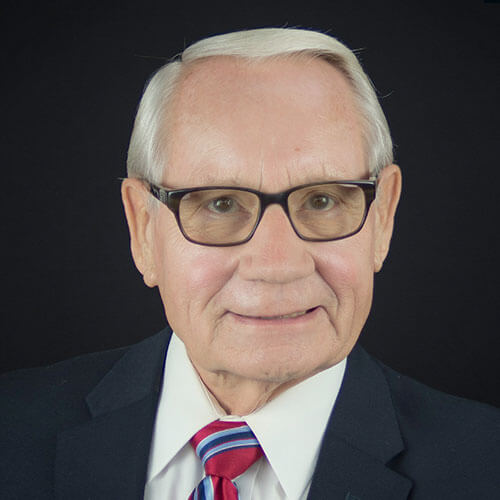Jeremiah 4:1-4.
Verse 3, “For thus saith the LORD to the men of Judah and Jerusalem, Break up your fallow ground, and sow not among thorns.”
Fallow ground is land allowed to lie idle and waste during the growing season, allowing thorns and weeds to take over. The time is during Josiah’s reformation, but it was before the Word of God was discovered in the Temple; therefore, it was reformation rather than a revival.
In reality, Jeremiah is saying that uncultivated land needs to be cultivated, and the Christian life needs to be planted in order to grow.
I say, cultivate your God-given opportunities. This reminds me of what the Bible says in 2 Corinthians 9:6, “But this I say, He which soweth sparingly shall reap also sparingly; and he which soweth bountifully shall reap also bountifully.” The lesson is that each day we must use our precious opportunities to a good advantage.
The saying, “Only what is done for Christ will last,” is true. Jeremiah said, “Break up your fallow ground, and sow not among thorns.” Hosea 10:12 says it much the same, “Sow to yourselves in righteousness, reap in mercy; break up your fallow ground: for it is time to seek the LORD, till he come and rain righteousness upon you.”
The Lord Jesus Christ spoke of thorny soil in Matthew 13:22, “He also that received seed among the thorns is he that heareth the word; and the care of this world, and the deceitfulness of riches, choke the word, and he becometh unfruitful.”
Vance Havner said, “I am convinced that much of our preaching and teaching in the church today amounts to cultivating briar patches. The Word of God is sown in the hearts unprepared to receive it, and the ground is never broken unto repentance. God does not rain righteousness upon us because the ground has never been made ready for His showers of blessing.”
Charles Finney said, “Fallow ground is ground which has once been tilled, but which now lies waste, and needs to be broken up and mellowed before it is suited to receive grain. To break up fallow ground is to break up your hearts, to prepare your minds to bring forth fruit unto God.”
Spurgeon said, “If a man will not sow wheat, he shall have a crop for the weeds will spring up and increase till the fallow field shall become a wilderness of thorns and briars.”
Vance Havner continues, “If people’s hearts are not ploughed up in conviction and the thorns and weeds exterminated by confession and cleansing, we are really cultivating human briar patches with just enough wheat here and there to make them appear religious.”
Jeremiah lamented that there had been no blessing because the people had the face of a woman of the street and could not blush, 3:1-6. That is the way it is in America today; we used to blush when we were ashamed; now we are ashamed if we blush.
Today, much preaching is wasted on church members because many are stubborn and worldly and live in conscious sin. Worldliness, rebellion, bad attitudes, and carnality are rampant in the mega-churches of today. Someone said, “We feed them cream puffs when they need bitter medicine first; they need surgery, not sunbaths.” Christians are often instructed on their position in Christ, while little is said about their condition in daily living and consecration.
Again, Vance Havner, “I supposed that if wheat is sown in a briar patch, a little would spring up, but you would still have a briar patch. We are cultivating church members with a little religion here and there, but we are not raising wheat, we are cultivating briars.”
The unconvinced heart is like fallow ground; that is, it is ground capable of improvement, but it is fallow, untilled, and thereby unfruitful. In order to farm, we must break up the ground, sow the seed, cultivate the crop, and gather the harvest; it takes all four.
In the spiritual field, the soul-winner sows the seed, the teacher waters the Word, the pastor cultivates the crop, and we all gather the harvest. A pastor could perform all four of these functions, but first of all, he must break up the fallow ground. He cannot break up the ground all the time; one of these activities is not enough, nor are any two or three of them, but it takes all four to see fruitfulness.
In the New Testament, we must begin with a John the Baptist to tear down the high places (an evangelist) and make a way for the Lord. The question is, are we raising wheat or cultivating briar patches? We must cultivate our opportunities because,
I. WE HAVE ONLY ONE LIFE FOR ALL ETERNITY
We must break up the fallow ground and maintain the ground until Jesus comes:
- In the individual’s heart. I wonder how many opportunities have been neglected. As long as we cherish our sin, we are preventing growth. Hearing truth is not enough because if it is not acted upon, truth will be choked out.
- In our own Jerusalem and neighboring communities. Many enjoy the privilege of the plowed ground, but so few are willing to maintain it.
- In the world—that is, to reach the nations with missionaries.
We do not have eternity in this life, and therefore we must recognize that,
- Time is uncertain, James 4:13-15.
- Treasures are to be used, Matthew 6:19-21.
- Trials are to be utilized, Romans 8:28.
When we do what we can, God will do what we cannot.
II. WE HAVE ONLY ONE FAMILY FOR ALL ETERNITY
Please read Ephesians 6:1-4.
- We must win our children to Christ.
- We must worship Christ together.
- We must watch for each other’s welfare.
III. WE HAVE ONLY ONE GOD TO ACCOUNT TO FOR ALL ETERNITY.
2 Corinthians 5:10, “For we must all appear before the judgment seat of Christ; that every one may receive the things done in his body, according to that he hath done, whether it be good or bad.”
We will give account to God for at least three things:
- For use of our lives.
- For understanding of our families.
- For usefulness to God.
Break up your fallow ground because opportunities are fleeting, and we cannot afford to let another day pass without complete surrender to the will and purpose of God. We will profit, our families will prosper, and many will proclaim that, in fact, Christ is a wonderful Saviour!
Share this post

Hans Nikoley, GSBC Staff
Bro. Nikoley emigrated from Germany to the United States with his family at age 13. He served full time in the Nevada Air National Guard for six years. At age 32, He was saved, and in 1977, he graduated from Bible College. He pastored for over 31 years, 27 of them at Pomerado Road Baptist Church in Poway, California. Bro. Nikoley has served at Golden State Baptist College in the Bible Department and also as the Student Employment Director since 2007. He and his wife Mary have two children and have been married for 58 years.


Stay connected